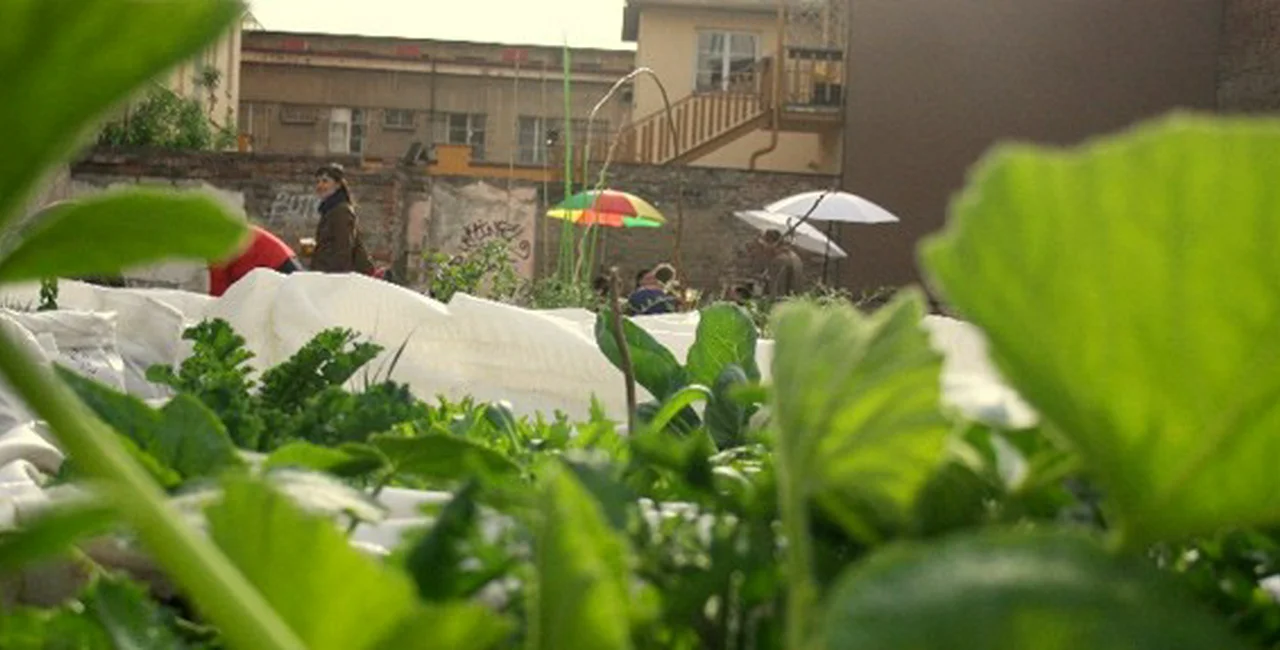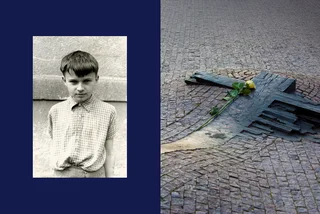In Brooklyn, New York, one of the world’s largest rooftop farms provides fresh vegetables to the city, along with eggs from their own hens and honey from their own bee yard. In London, Food from the Sky grows organic food on the roof of the supermarket where it sells its harvest. In Berlin, a formerly neglected site in the city center is now home to a thriving community garden.
To grow food, to create community, to contribute to a more sustainable food system and environment, or to beautify urban space, urban gardening has been firmly planting it roots in cities across the world over the last few years. However, despite the movement’s impressive growth, urban gardening has only very recently started sprouting up in Prague.
On the bustling Komunardů street in Holešovice, just past the Dělnická tram stop, a metal fence adorned with spray-painted happy vegetables marks the entryway into Prazelenina: Prague’s first community urban garden located in the heart of the city. Situated on a plot of land that had been unused for almost ten years, Prazelenina offers the opportunity for anyone who is interested to grow what their heart desires throughout the gardening season (April-October). For a fee, participants are provided with a grow-bag, soil, water, a wooden pallet that the bag rests on, and free admission to the garden’s events. Along with three rows of bags – each comprised of two rows – the space includes a café which sells alcoholic and non-alcoholic beverages and a few wooden tables.

Prazelenina
Founded by architect Matěj Petránek, Prazelenina is currently in the throes of its first year. “We have 80 people gardening here,” says Petránek. “We have 120 bags, because a few people have more than one bag.” Including Czech, British, American, and French participants, the group is as mixed as their gardening experience. “It’s about half and half [in terms of their experience],” Petránek says.
Viewing the project as a community one, Petránek’s purpose was creating a means to enrich society. “We wanted to create a place for meetings and families,” he says. “We say we don’t just grow vegetables, but also new relationships.”
It’s his hope that through these types of projects, Prague inhabitants will be motivated to initiate similar efforts on their own. “It’s very important to activate Prague citizens to feel responsible for their environment and to try to fight for their rights and stop huge projects that cost a lot of money and don’t bring a lot of value to people.”
Speaking about the government sector, in Petránek’s opinion, these types of projects are “a new thing for them”, so they are inclined to stick their ways. Before deciding to rent the property that currently houses Prazelenina, he approached the Prague 7 municipality to attempt to get some land for the garden but was unsuccessful. “They were scared of [the project], because [it’s something they are not familiar with].”
“I hope [the government’s response to these type of projects] is going to change. [In the meantime], it’s up to us to come up with these kinds of projects and to show it is possible to do things another way.”
Petránek’s efforts are already paying off. Just recently, he met a gentlemen who told him that he would create a similar project in Vysočany next year.
In Jižní Město, a small community garden is currently in full bloom at the community cultural center KC Zahrada. Featuring tomatoes, potatoes, zucchini, carrots, peppers, onion, strawberries and a variety of herbs, the garden was initiated and is hosted by Kokoza, a social enterprise founded and run by Lucie Lankašová and Kristina Řešátková. Standing for (in Czech) community, compost, and garden, Kokoza’s two main functions are planting and composting.
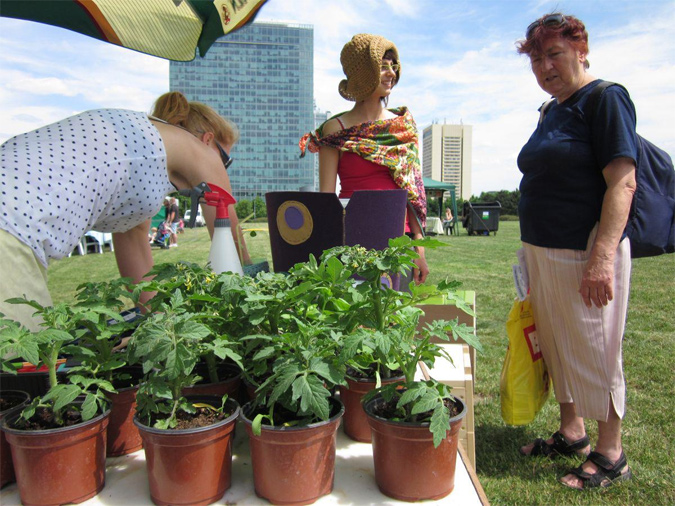
Kokoza
The garden, started in April, has 20 participants from the community. In addition to providing a space where people can grow directly in the ground, in boxes, or bags (along with a few tomato plants on the roof), Kokoza has also offered workshops giving people the skills and know-how to garden. However, according to Kokoza co-founder Řešátková, the garden is just a piece of a much larger picture. “This is one small step to our big mission,” she says.
Currently, the duo is focusing most of their energies on the realization of an on-site compost facility, which they’re aiming to bring to life next spring. To be located in either Prague 11 or Prague 4, the facility will house a large, in-vessel composter. Following the Kokoza “Food-loop” cycle (inspired by the Food-loop cycle and program initiated by the London-based Seed Foundation), biodegradable food waste will be collected from households each week (residents will place their waste in bags in front of their house), composted at the facility, and used to grow food on site, which will be sold and the waste will then be composted again. Kokoza will employee people with disabilities, who will make their collection route via special bikes.
“We want to compost around 150 tons per year, “says Řešátková. “It’s our goal by 2030 to have a compost facility in each part of Prague.”
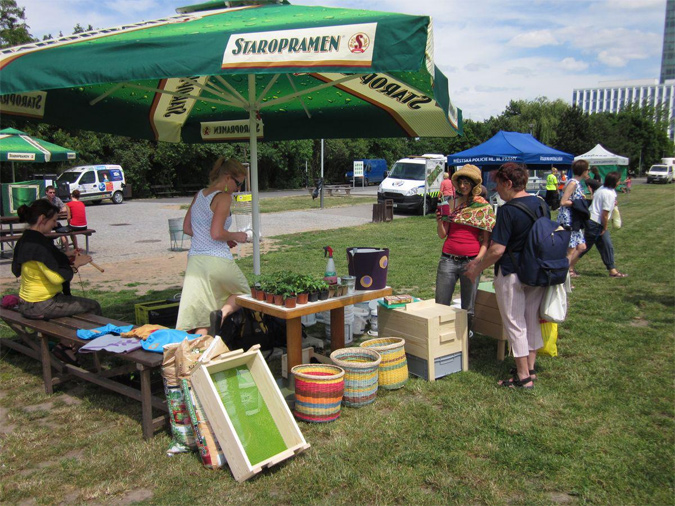
Kokoza
Through the unique technology offered by the particular in-vessel composter they wish to use, they hope to remedy concerns about composting in the city.
“We had the idea for Kokoza about two years, but because urban gardening is new to Prague it was difficult to explain it to the Prague government, to show that it works,” says Řešátková. “They particularly had a problem with the composting component of the project. They expressed worry about the smell and attracting vermin. But the composter we want to use, the Rocket from Tidy Planet, everything is inside, everything is controlled and in around three weeks you have good compost.”
Currently seeking external funding, Kokoza hopes to eventually support themselves through the sale of their own products – including a wood compost box, made in cooperation with designer Martin Žampach, to be used in households, restaurants and other organizations – and their services, including teaching restaurants, cafés, and companies how to compost their own biodegradable waste. Very recently, Kokoza installed their first compost box in Prague’s Famagusta restaurant.
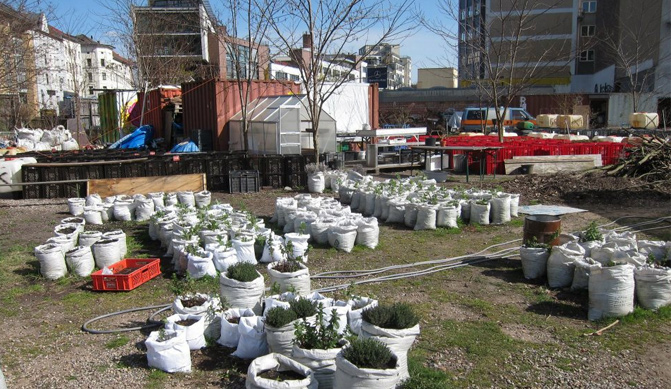
Prinzessinnengarten in Berlin
In response to why urban gardening has been slow to take off in Prague, Řešátková says it’s both not surprising and a bit of surprise. “As with everything, I think we are behind Western Europe. I don’t know why because we have strong traditions in gardening. We are handy people. We are mushroom pickers and have a lot of experience with gardening,” she says. “We don’t like new things. We worry. Some people worry that it’s not good to garden in the city. But it’s all about the soil. If you have good soil, you can garden anywhere.” As with Kokoza, Řešátková believes it’s a good idea to start small and go from there. “It takes time. I think this is the way: start small and then get bigger.”
Other urban garden initiatives in the city include guerilla gardening – another global movement that sees participants spontaneously plant flowers and other plantings in unused or unsightly public space. Although loosely organized, the Prague-based guerilla gardener’s have a Facebook page with over 1,500 members. In cooperation with the Czech Beekeeper’s Union, the Centrum Chodov shopping center now houses three working beehives on its roof. Shoppers had the opportunity to taste the fruits of the bees’ labor with two separate honey festivals held in June and July.
Since 2010, the Foreign Agricultural Service (FAS) of the U.S. Embassy Prague has hosted the first Czech “People’s Garden”. Initially located on the embassy grounds, the garden moved to the Průhonice Dendrological Garden in 2011 to be more accessible to the public. “The purpose of the garden is not only educational. It is also a unique opportunity to bring together people from different organizations and promote the idea of the U.S. project of ‘People’s Garden’, launched by U.S. Secretary of Agriculture Tom Vilsack in 2009, and the idea of community gardening in general,” Jana Mikulášová, FAS, U.S. Embassy Prague Agricultural Specialist says. “The Vegetable Garden project allows us to bring attention to other related topics like healthier lifestyle or sustainability. Visitors of the Dendrological Garden, as well as its employees or visiting school groups, can all consume the vegetables and herbs from our garden.” Mikulášová said that because of the growing popularity of community gardening, they are planning to organize a related workshop or event at the Embassy’s American Center in the fall.
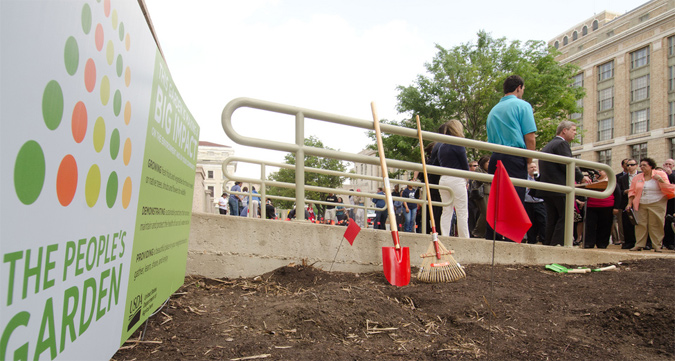
People’s Garden
Another urban gardening idea that has seen numerous concepts but few realizations is the vertical garden. Czech architects Michaela Dejdarová and Michal Votruba were recognized through the annual eVolvo Skyscraper competition for their vertical garden concept in the competition’s 2010 iteration. Situated along the Vltava River, near Barrandov, the proposed structure is comprised of tetrahedrons that support private gardens for the flat’s inhabitants. The vertical farm makes use of rainwater, or water from the river, and waste biomass as a source for thermal and electrical energy.
As more urban gardening ideas keep popping up in cities around the world, it will be interesting to watch the growth in Prague. Are you an urban gardener? Do you know of any urban gardening initiatives happening around the city? We’d love to hear about your experiences or any urban gardening ideas you might have!












 Reading time: 7 minutes
Reading time: 7 minutes 